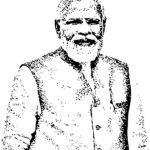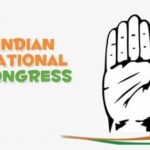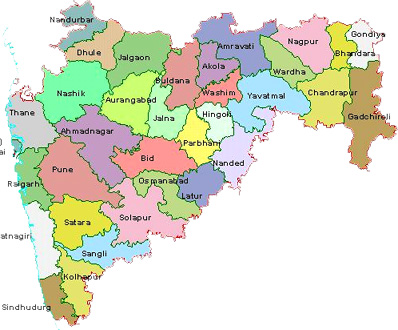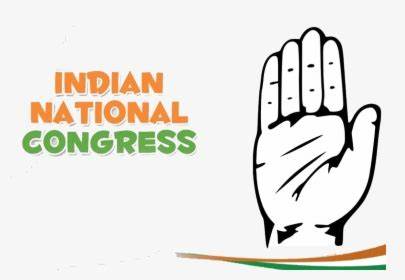Understanding the Rafael Deal Controversy
The Rafael Deal controversy has been a subject of intense scrutiny and debate surrounding the integrity of Indian Prime Minister Narendra Modi. The deal, an agreement between the Indian government and the French aerospace company Dassault Aviation, has faced allegations of corruption, favoritism, and lack of transparency. This article delves into the intricacies of the controversy, providing an overview of the Rafael Deal, examining the allegations against Narendra Modi’s integrity, and exploring the implications it holds for both his reputation and leadership. By unraveling the complexities of this controversy, we aim to shed light on its significance in the political landscape and the potential consequences it may have for Narendra Modi and his government.
Unraveling the Controversy Surrounding Rafael Deal: Implications for Narendra Modi’s Integrity
Background of the Rafael Deal
The Rafael Deal refers to India’s procurement of 36 Rafale fighter jets from French manufacturer Dassault Aviation. It was signed in 2016 during Prime Minister Narendra Modi’s tenure. The deal aimed to strengthen India’s defense capabilities and modernize its Air Force.
The Rafael Deal controversy has garnered significant attention due to allegations of corruption and favoritism. Critics argue that the deal was marred by irregularities, concerning issues such as pricing, offset contracts, and the selection process. The controversy has raised questions about the integrity and transparency of the Modi government.
The Rafael Deal involved the purchase of 36 Rafale jets, along with associated equipment and services, from Dassault Aviation. The deal was valued at around 7.8 billion euros. It aimed to replace the aging fleet of Indian Air Force with advanced fighter aircraft, strengthening India’s defense capabilities.
Parties Involved in the Deal
The key parties involved in the Rafael Deal were the Indian government, represented by Prime Minister Narendra Modi and the Defense Ministry, and Dassault Aviation from France. Various subsidiaries and defense organizations were also engaged in the deal, both from India and France.
Allegations Against Narendra Modi
Critics have levied allegations against Prime Minister Narendra Modi, claiming that the Rafael Deal was riddled with corruption, favoritism, and lack of transparency. They argue that the deal was overpriced and accuse Modi of crony capitalism and nepotism.
Counter-Allegations and Defense
The government has vehemently denied these allegations, stating that the Rafael Deal was transparent, necessary for national security, and negotiated in line with established procurement procedures. They argue that the allegations are politically motivated and an attempt to tarnish Modi’s image.
Political Implications: How the Controversy Affects Narendra Modi’s Reputation and Leadership
The Rafael Deal controversy has undoubtedly impacted Narendra Modi’s reputation, with critics using it to question his commitment to transparency and integrity. However, Modi’s strong support base and his government’s efforts to defend the deal have somewhat mitigated the damage to his image.
Influence on Political Alliances and Opposition Parties
The controversy has also had implications for political alliances and opposition parties. The opposition has capitalized on the controversy to mount attacks against Modi’s government, aiming to weaken its position and gain political mileage. The Rafael Deal has become a contentious political issue leading up to elections and has shaped the dynamics of the political landscape.
In conclusion, the Rafael Deal controversy surrounding Narendra Modi has raised questions about the integrity of the Indian government and the transparency of the procurement process. While supporters argue that the allegations are baseless, the controversy continues to have an impact on Modi’s reputation and political alliances.
The controversy surrounding the Rafael Deal has raised questions about the extent to which legal procedures were followed during the procurement process. Critics argue that proper protocols may have been overlooked, leading to suspicions of favoritism or corruption. As investigations unfold, it remains essential to closely examine whether the deal adhered to all the necessary legal requirements and whether any irregularities occurred. Addressing these concerns is crucial to ensure transparency and maintain trust in the decision-making process.
Ethical concerns and transparency
Transparency is the cornerstone of any governmental deal, especially one as significant as the Rafael Deal. Ethical concerns arise when there is a lack of transparency and open communication with the public. To restore faith in the integrity of the deal, it is essential for the involved parties to provide clear and comprehensive explanations regarding the decision-making process, the selection of vendors, and the terms of the agreement. Upholding ethical standards and fostering transparency will help alleviate doubts and skepticism surrounding the Rafael Deal.
The media plays a vital role in shaping public opinion, and the way they portray and cover the Rafael Deal controversy can significantly influence public perception. Media outlets should strive for balanced reporting, providing unbiased information to allow individuals to form their own opinions. It is imperative to avoid sensationalism and maintain journalistic integrity in order to promote a fair understanding of the complexities surrounding the deal.
Public opinion has been divided regarding the Rafael Deal controversy. Some individuals believe that the allegations are unsubstantiated and politically motivated, while others express concerns about potential misconduct and misuse of public funds. As the controversy progresses, it is essential to listen to the different perspectives and engage in constructive dialogue to foster a better understanding of the issue. Acknowledging public sentiment and addressing the valid concerns of citizens is crucial for maintaining public trust and confidence in the government.
The way the government handles the Rafael Deal controversy will greatly impact its credibility and the public’s perception of its integrity. It is imperative for the administration to conduct a thorough investigation, collaborate with relevant authorities, and take appropriate actions based on the findings. By demonstrating a proactive and sincere commitment to resolving the controversy, the government can work towards restoring public confidence and upholding its commitment to ethical governance.
The outcome of the Rafael Deal controversy may have significant implications for Narendra Modi’s political career. If substantial evidence of wrongdoing is found, it could tarnish his reputation and undermine public trust in his leadership. Alternatively, effectively addressing the concerns and ensuring transparency could reinforce the perception of his commitment to accountable governance. The long-term impact on Modi’s political career will depend on how the controversy unfolds, and the actions taken by him and his administration.
Regardless of the outcome, the Rafael Deal controversy provides an opportunity to learn important lessons and implement preventive measures for future deals. It highlights the need for stricter processes and transparency in defense procurement. Strengthening oversight mechanisms, introducing greater checks and balances, and engaging in constant evaluation of procurement practices can help prevent similar controversies in the future. It is crucial to use this experience as a stepping stone towards improving governance and ensuring accountability in all governmental deals.In conclusion, the controversy surrounding the Rafael Deal has had far-reaching implications for Narendra Modi’s integrity and leadership. The allegations and counter-allegations, along with the legal and ethical considerations, have raised questions about the transparency and fairness of the deal. The media coverage and public perception have further contributed to the complexity of the issue. As the government responds to the controversy, the long-term consequences for Narendra Modi and his administration remain uncertain. It is crucial for lessons to be learned from this controversy to ensure greater accountability and transparency in future deals. The Rafael Deal controversy serves as a reminder of the importance of maintaining integrity in governance and upholding public trust.












